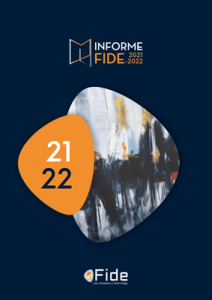
President Macron of France first called for a new grouping of states to be known as the European Political Community in 2019, and offered more details of what he had in mind in a speech in May this year.
The new organization proposed by Macron would, he argues, allow democratic European nations with shared core values “to find a new space” for political and security cooperation, cooperation in the energy sector, in transport, investments, infrastructures, and the free movement of persons. He adds that joining it “would not prejudge future accession to the European Union necessarily, and it would not be closed to those who have left the EU.” In other words, the UK would be welcome, having left the EU, as would Turkey, which is now unlikely ever to join it.
The embryonic European Political Community is due to hold its first meeting in Prague on 6 and 7 October. UK Prime Minister Liz Truss has been invited but at the time of writing has not said whether she will attend. She is reported to be worried that the new bloc will be dominated by the EU and its institutions. Of course, it will and it would be unrealistic to expect anything else. She should nevertheless go, and she should not be afraid to offer a big idea or two of her own to shape the course of debate. EU Member States do not seem sufficiently in agreement to have a detailed blue-print they are determined to sell. She should not try to hijack Macron’s brainchild, but to secure a place for the UK alongside France and Germany in a “directorate” overseeing European security and defence. That is, after all, one of the objectives President Macron is seeking to achieve. If PM Truss does not go to Prague, it will be an opportunity lost.
Getting a European Political Community (EPC) up and running, with all the States in it that need to be there, could be a challenge. What should it look like, and how might a coalition of the willing get it off the ground without getting bogged down in negotiations about technical detail?
There seems to be a consensus that a binding treaty is to be avoided in favour of an informal framework. That makes sense. A good option would be an agreed statement of aims fleshed out by political agreement on the structure of the organisation, voting rules and the status of votes taken by the EPC.
A simple structure seems to be what is wanted and is certainly to be preferred. Proposals and initiatives should result directly from the sponsorship of member countries, without the need for an institutional secretariat.
A low-cost operation will be a priority. There must be no big new financial commitments because the countries who would have to pay the bills already have enough bills to pay. Even a frugal administrative budget can be avoided if countries simply pay their own way on attending meetings face-to-face or online. This would not rule out member countries financing specific projects or financing each other, but that would only come about if they voted specifically to do so on a project-by-project basis.
Who will be in the new EPC if it gets off the ground? Macron’s invitation list to the Prague meeting includes 17 non-EU Member States. Total membership of the new club would be drawn from Member States of the EU (27), plus the 4 EFTA States (which includes Norway and Switzerland), plus EU wannabees (which includes Ukraine and NATO member Turkey), plus the UK. Not all these countries might choose to sign up, and some EU Member States might prefer to stay out. Nevertheless, this potential membership of 40 plus countries amounts to more than a fifth of the United Nations and potentially a (sort of) regional version of that world body.
In fact, the EPC could be very loosely modelled on the United Nations, with the maintenance of international peace and security being its main aim, along with at least some of the other objectives flagged up by President Macron such as cooperation in the fields of energy and transport.
In this “United Nations” model of the EPC, the basic working unit would be a European General Assembly, made up of all the Member States of the EPC. This General Assembly would adopt resolutions, with the threshold for adoption being, say, 75% of the total membership. Resolutions might create political commitments for those voting for them, but not for other Member States. The Presidents of the European Council, the European Commission and the European Parliament would participate in meetings but would have no vote. They would provide a bridge between the EPC and the EU institutions.
There would also be a European Security Council. This is something Macron has floated in the past, as a body in which the UK would participate. In this manifestation it could comprise France, Germany, the UK and Turkey. Where a vote in the General Assembly related to military action or cooperation or the provision of military equipment or aid, it could only be carried if it enjoyed the support of at least three of the four Members of the Security Council. Such a Council would give impetus to collective security thinking by the quartet as well as increased bilateral links between the UK and the other three parties. It could breathe new life into UK-French military cooperation under the Lancaster House agreements, which has been allowed to languish in the aftermath of Brexit. It would give both the UK and Turkey prominent roles in European defence circles. Presentation is no substitute for substance, but it can influence events.
Members of this quartet are all well-qualified for the hypothetical role. France and the UK are Western Europe’s two nuclear-armed powers, currently its most credible military actors, and Members of the UN Security Council. Germany is indispensable as the EU’s paymaster and political heavyweight and has made credible commitments to significant increases in military expenditure and military capability. Late in the day, it delivered significant military hardware to Ukraine. NATO member Turkey is a country the Macron initiative is designed to bring into his broader political grouping as a consolation prize for being excluded from the EU. It is a credible military power located in a strategically significant place in the world and it needs to be taken seriously.
An EPC along these lines could be up and running in short order. The European General Assembly and Security Council could agree their own procedural rules and remit and provide an immediate or near-immediate forum for discussions and conclusions on European security and defence and perhaps other issues, but right at the moment security and defence are priorities.
It is impossible to say with any confidence whether an initiative like this would bring more security, stability and prosperity to Europe and the wider world. Some potential partners would be looking mainly to secure new lines of funding with little thought of what they might contribute to the exercise. Success would depend on intangibles like political perceptions, energy and resolve. A new forum for talking and making political commitments would not of itself increase anybody’s security or prosperity and could, from a UK perspective, distract participants from existing and proven channels of political, security and defence collaboration like the G7 and NATO and the various other defensive configurations in which the UK is involved. Success is far from guaranteed, but Macron’s project should not be written off before potential participants have had a chance to show their hand. The UK’s hand could be decisive. Whether the political vision and will is there is at time of writing unknown.

Derrick Wyatt, KC is Emeritus Professor of Law, University of Oxford, where he taught EU law, constitutional law, and public international law. He was formerly a barrister specialising in litigation before the EU Courts and is currently a Member of the International Academic Council of Fide Fundación, an independent and non-partisan Spanish think-tank.



















